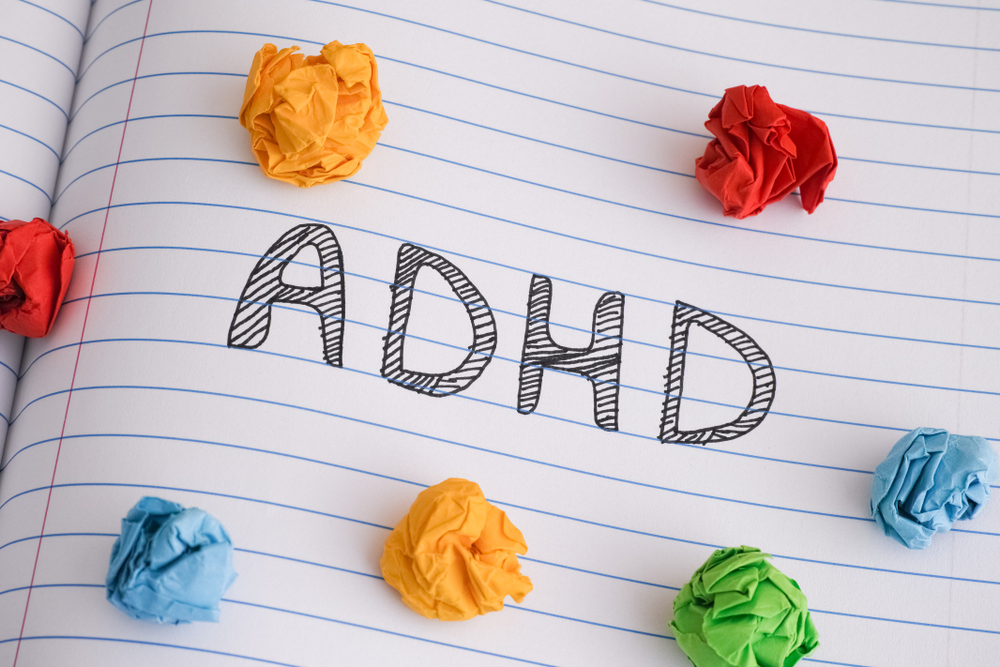Amid a surge in ADHD diagnoses, a deeper dive into five pivotal medical triggers offers unexpected insights into this global phenomenon.
Attention-Deficit/Hyperactivity Disorder (ADHD) is a neurodevelopmental disorder characterised by persistent patterns of inattention, impulsivity, and hyperactivity.
Traditionally, its diagnosis primarily relied upon behavioural observations and self- or informant-reports. However, as we’ve delved deeper into the complexities of the brain and its functions, our methodology for diagnosing ADHD has consequently evolved.
Indeed, the past decade has been particularly pivotal in this regard. We’ve observed a significant shift in the diagnostic landscape of ADHD. Notably, this transition has been marked by the seamless integration of technological advancements and evidence-based research. This amalgamation has not only refined our understanding but also enhanced the precision with which we diagnose this condition in individuals. The future, therefore, holds promise for even more nuanced and accurate approaches to ADHD diagnosis.
1. Better Diagnostic Procedures
Over the past decade, there has been a significant evolution in the tools and techniques used for ADHD diagnosis. As medical technology has advanced, our understanding of ADHD’s complex manifestations has deepened, leading to more accurate and timely identifications.
One notable advancement is in the field of neuroimaging. Specifically, techniques such as functional MRI (fMRI) and electroencephalography (EEG) have shed light on the neurobiological aspects of ADHD. Consequently, this has greatly enhanced diagnostic accuracy.
Moreover, there’s been a shift towards integrating comprehensive clinical assessments with standardized rating scales. This combination provides a more holistic view of the patient, ensuring that no symptom or behaviour goes unnoticed. As a result, cases that might have previously been overlooked due to limitations in older diagnostic tools are now being identified more frequently and accurately. The culmination of these advancements offers hope for those struggling with ADHD, as early and accurate diagnosis paves the way for effective intervention and support.
2. Increased Awareness and Education
Over recent years, there has been a notable surge in awareness and education surrounding ADHD among healthcare professionals and educators, as concerted efforts have been made to increase ADHD awareness through campaigns and initiatives.
These initiatives ensure that ADHD symptoms are identified promptly, leading to more accurate and timely diagnoses, and subsequently, appropriate interventions.
3. Genetic Predispositions
Family history has traditionally been a cornerstone in the assessment of numerous health conditions, and ADHD appears to be no exception. Contemporary research highlights the role of genetics in the predisposition to ADHD.
A study published in Nature Genetics identified several genetic markers associated with ADHD, suggesting that certain genetic variations might significantly contribute to the disorder. Furthermore, a meta-analysis in the American Journal of Psychiatry affirmed that heritability plays a crucial role, accounting for approximately 70-80% of the variability in the risk of developing ADHD.
4. Broader Definition and Understanding
Over the years, our grasp of ADHD has progressively deepened, leading to a more comprehensive and nuanced definition of the disorder. In the past, behaviours that might have been simply brushed off as mere ‘restlessness’ or ‘inattention’ are, in today’s context, more aptly recognised as symptomatic of ADHD.
In light of this, the American Psychiatric Association’s Diagnostic and Statistical Manual of Mental Disorders (DSM-5) has undergone revisions. Specifically, the criteria for ADHD diagnosis have broadened, mirroring a more refined understanding and appreciation of the disorder’s multifaceted nature.
Furthermore, these evolving paradigms in understanding ADHD have paved the way for more inclusive diagnostic criteria. As a result, this ensures that individuals who might have previously fallen through the cracks are now more accurately identified and diagnosed, offering them the opportunity for timely interventions and support.
5. Empowered Patients in the Digital Age
In today’s digital era, the ubiquity of social media platforms and health-focused online communities has fostered a more informed patient population. Individuals are increasingly encountering first-hand accounts and resources related to ADHD on platforms like Tiktok, Twitter, Reddit, and various health forums.
This surge in information accessibility has empowered many to recognise ADHD symptoms within themselves or their loved ones. Patients are now more proactive in seeking answers. By asking targeted questions during medical consultations, and advocating for their own health due to the knowledge they’ve acquired online.
This self-awareness and proactive approach, fuelled by digital access, contribute to an uptick in ADHD diagnoses as more individuals recognize and seek help for their symptoms.
Final Thoughts
The uptick in ADHD diagnoses is far from arbitrary; it represents the confluence of advancing medical research, societal awareness, and individual empowerment.
By comprehensively examining these drivers, we demystify the intricacies of ADHD. Furthermore, we champion a more compassionate and informed approach to care. It is our collective responsibility to ensure that every individual is supported on their unique journey.
References
- Cortese, S., Kelly, C., Chabernaud, C., Proal, E., Di Martino, A., Milham, M. P., & Castellanos, F. X. (2012, October 1). Toward Systems Neuroscience of ADHD: A Meta-Analysis of 55 fMRI Studies. American Journal of Psychiatry; American Psychiatric Association. https://doi.org/10.1176/appi.ajp.2012.11101521
- Wolraich, M. L., Hagan, J. F., Allan, C., Chan, E., Davison, D., Earls, M. F., Evans, S. W., Flinn, S. K., Froehlich, T. E., Frost, J., Holbrook, J., Lehmann, C. U., Lessin, H. R., Okechukwu, K., Pierce, K., Winner, J. D., Zurhellen, W., & Author_id, N. (2019, October 1). Clinical Practice Guideline for the Diagnosis, Evaluation, and Treatment of Attention-Deficit/Hyperactivity Disorder in Children and Adolescents. Pediatrics; American Academy of Pediatrics. https://doi.org/10.1542/peds.2019-2528
- Attention-Deficit / Hyperactivity Disorder (ADHD). (2023, March 30). Centers for Disease Control and Prevention. https://www.cdc.gov/ncbddd/adhd/index.html
- Demontis, D., Walters, R., Martin, J., Mattheisen, M., Als, T. D., Agerbo, E., Baldursson, G., Belliveau, R., Bybjerg‐Grauholm, J., Bækvad‐Hansen, M., Cerrato, F., Chambert, K., Churchhouse, C., DuMont, A. L., Eriksson, N., Gandal, M. J., Goldstein, J. I., Grasby, K. L., Grove, J., . . . Neale, B. M. (2018, November 26). Discovery of the first genome-wide significant risk loci for attention deficit/hyperactivity disorder. Nature Genetics; Nature Portfolio. https://doi.org/10.1038/s41588-018-0269-7
- Faraone, S. V., Perlis, R. H., Doyle, A. E., Smoller, J. W., Goralnick, J. J., Holmgren, M. A., & Sklar, P. (2005, June 1). Molecular Genetics of Attention-Deficit/Hyperactivity Disorder. Biological Psychiatry; Elsevier BV. https://doi.org/10.1016/j.biopsych.2004.11.024
- DSM. (n.d.). https://www.psychiatry.org/psychiatrists/practice/dsm
- Reebye, P. (2008, February 1). Attention–Deficit Hyperactivity Disorder: A Handbook For Diagnosis And Treatment, Third Edition. PubMed Central (PMC). https://www.ncbi.nlm.nih.gov/pmc/articles/PMC2247447/
- Reebye, P. (2008, February 1). Attention–Deficit Hyperactivity Disorder: A Handbook For Diagnosis And Treatment, Third Edition. PubMed Central (PMC). https://www.ncbi.nlm.nih.gov/pmc/articles/PMC2247447/














